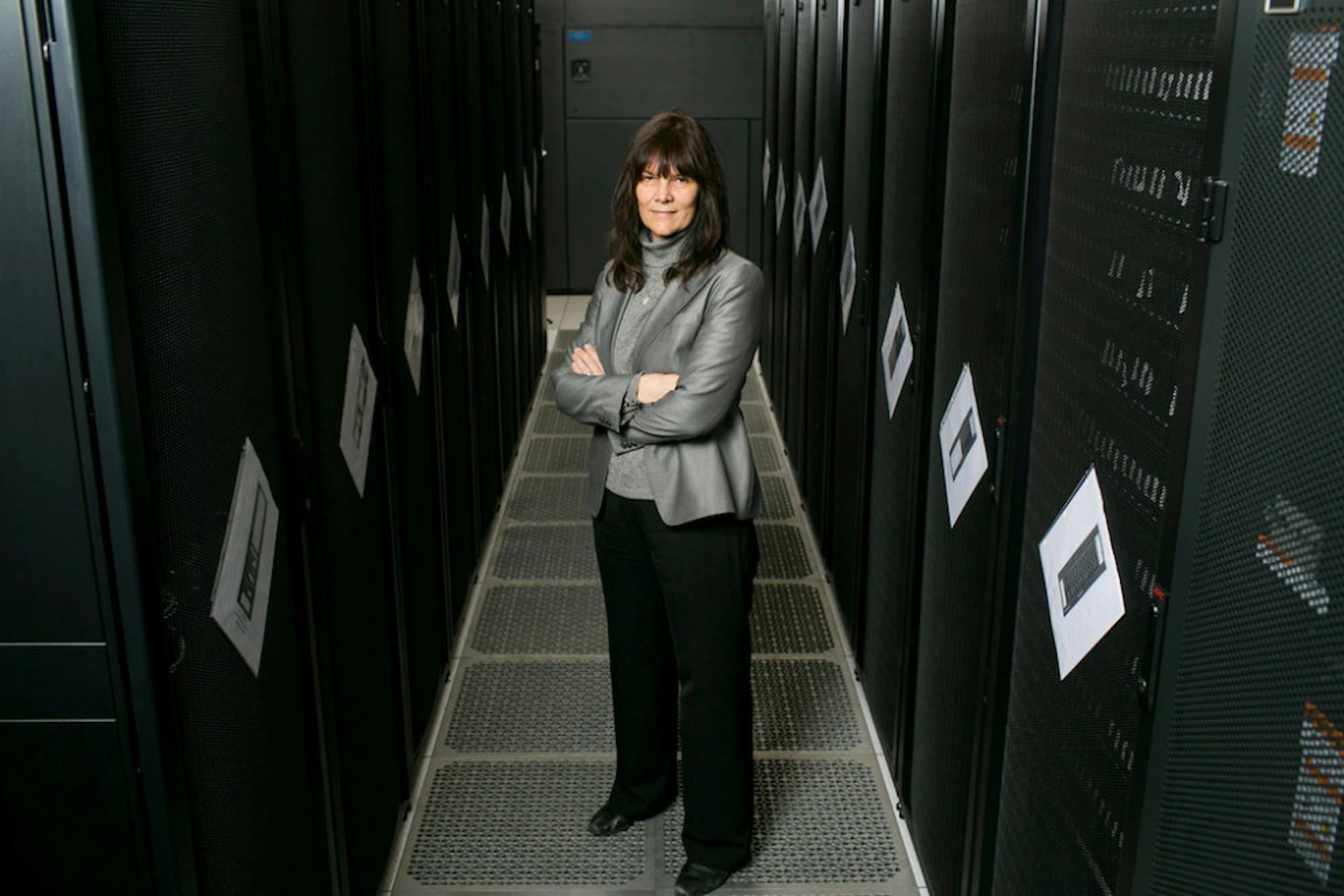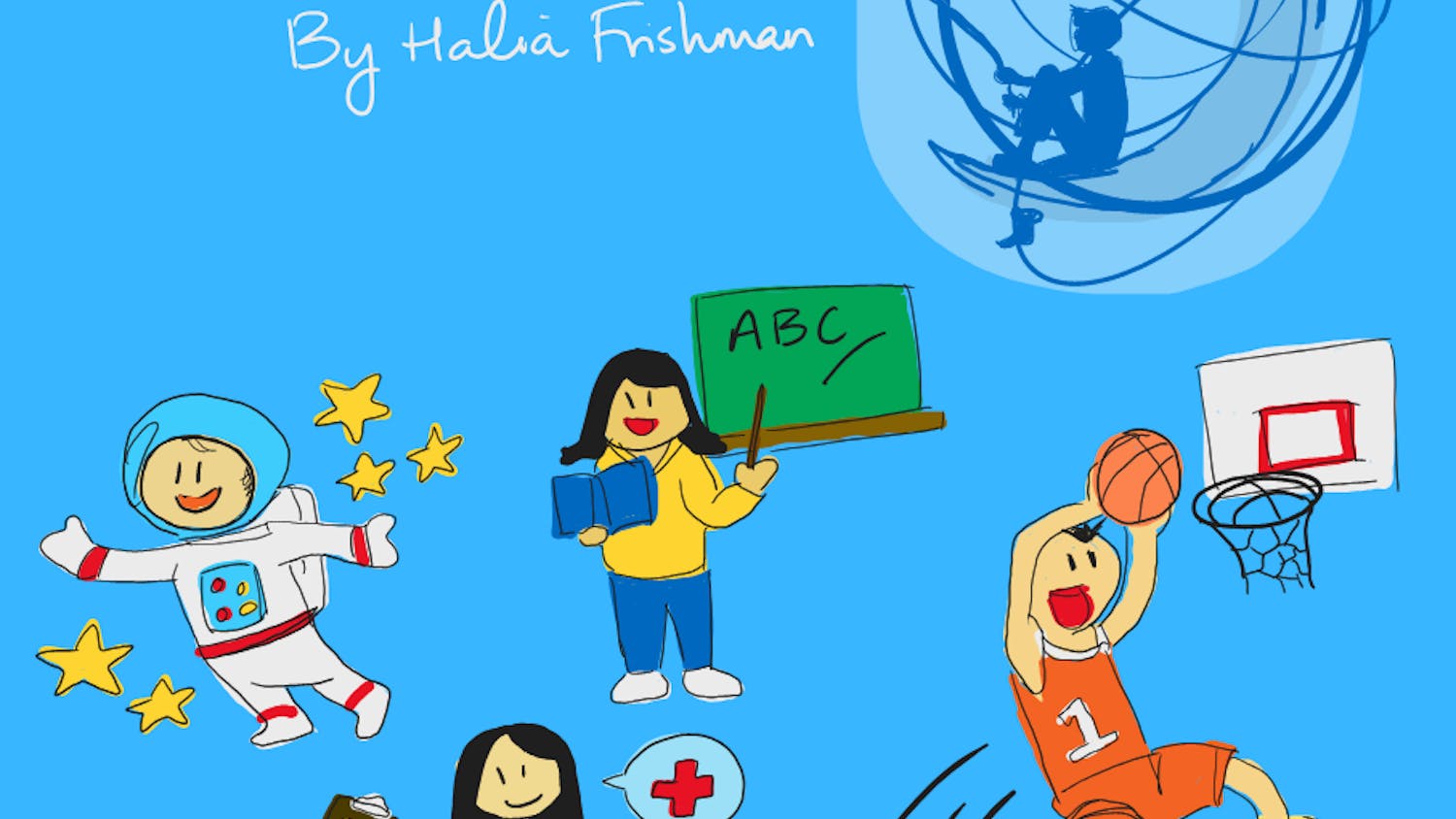Kathleen Fisher, professor and chair of the Department of Computer Science and cybersecurity expert, is almost intimidatingly accomplished, as her colleague and fellow cybersecurity expert Ming Chow attested.
“She’s done so much for not just computer science, but for women in computer science, for cybersecurity. When you look at her body of work, it’s like, 'Oh my god,' it’s so intimidating to talk to her,” Chow, senior lecturer in computer science, said.
According to her faculty profile, Fisher received her Ph.D. in computer science from Stanford University in 1996, before she went on to work at AT&T Labs and serve as a program manager at the Defense Advanced Research Projects Agency (DARPA) in the U.S. Department of Defense. She has also served as a co-chair of the Computing Research Association Committee of the Status of Women in Computing Research.
Most recently, she was appointed to a task force on artificial intelligence and national security at the Center for New American Security (CNAS) and has appeared in three videos discussing issues in cybersecurity on Big Think.
However, while Fisher’s accomplishments may seem daunting to those who are unfamiliar with her, Chow noted that she is in fact very approachable and does not have the ego or personality that is common among many in cybersecurity.
“Once you actually start talking to her and working with her, that fear all goes away. I have many advisees that were initially scared to death talking to Kathleen, but once they did it was like, ‘Oh my god, she is awesome to work with,'” Chow said.
One thing Chow cites as special about Fisher is the energy she exudes as a result of her deep passion and understanding for the complexities of her cybersecurity.
"The one thing that strikes me about Kathleen is she has the gravitas to really transform a program. What I mean by that is she has that magnetic energy that actually can grab you in. She has that energy to grab you in, to make you feel comfortable,” he said.
It’s this passion for understanding the complexities of the universe that drove Fisher to pursue computer science, demonstrated in her fascination with the halting problem. According to Fisher, the halting problem is an unsolvable conundrum that exists in computer science regarding infinite loops — an error a programmer can make causing a program to run for eternity without producing an answer.
It seems that there should be a way to create a program — what Fisher terms a “termination checker” — that would check whether a program will go off on an infinite loop. However, the essence of the halting problem is that this program is impossible to create, and one can prove it.
“You can prove that [the termination sequence] doesn’t exist on the back of a napkin in about five minutes time. So it says something really deep about the universe we live in or the mathematics [of] the world we live in, and that’s something that’s accessible and understandable,” Fisher said. “I think I decided [to pursue computer science] on the spot."
Fisher has since pursued many other fundamental challenges in the field. One example of this is her work with DARPA in the High-Assurance Cyber Military Systems and Probabilistic Programming for Advancing Machine Learning programs, where she tackled the issue of the cybersecurity of vehicles — colloquially understood as 'car hacking.'
“In the first program that I sold, the problem was people can remotely hack into cars and take over control of basically all of the capabilities of a car. They can take over the steering, the brakes, the locks, everything is under software control,” Fisher said.
In order to solve this problem, Fisher proposed a solution to DARPA that used formal methods, a technique that would allow her to prove that there were no bugs that hackers could exploit in the vehicle’s software.
“The idea was to use mathematical-based techniques called formal methods that allow you to produce software along with a proof that [the] software has certain properties. One property, for example, is that it’s memory safe. That means that there are no bugs of a certain type — and these sort of bugs are ones that hackers know how to exploit in order to break in. It's basically a proof that certain kinds of attacks can’t possibly work against this software,” she said.
As program manager at DARPA, Fisher led a blue team that would work on eliminating mistakes from the vehicle's code and a red team that would periodically see if they could hack into the vehicle using vulnerabilities the blue team didn’t catch.
“We had basically teams of researchers that were working on formal methods for operating systems, formal methods for control systems, working on vehicle platforms,” Fisher said. “The program turned out to be extremely successful, so that was a lot of fun.”
According to Fisher, her tenure at DARPA directly led to her recent appointment to the CNAS artificial intelligence task force. She explained that human cybersecurity expertise is still essential in developing artificial intelligence software.
“AI always runs on largely a computer platform, so if you haven’t made the platform secure, then the software running on top of it is not a well-oiled machine. Plus, when I was at DARPA, I spent a lot of time thinking about weaponized AI,” she said.
Fisher added that the potential for artificial intelligence to be weaponized and the transition from conventional to cyber warfare are pressing issues that the task force seeks to consider.
“I think cyber produces another front in a warfare kind of situation, where instead of launching missiles, you just launch a cyber-attack that maybe disables your enemy's cars, or disables your enemy’s power grid,” she said.
Fisher’s incredible accomplishments make her a role model for many aspiring computer scientists. Winnona DeSombre, a senior computer science and international relations double major, described Fisher's incredible presence as a professor.
“She’s an incredible, dynamic and dedicated lecturer. As a professor, then as the chair of the computer science department, she always wants to be sure that she’s making the right decisions for the good of all the computer science students,” DeSombre said. “She’s incredibly dedicated and accomplished and smart, and that exudes in her — she’s one of my personal role models.”
DeSombre also explained that Fisher accomplishes all of her academic and intellectual goals while serving as an important resource and advocate for women in computer science.
“Women in Computer Science wasn’t an organized, official club, and a lot of the things we did we had to go through the computer science department in order to do. Kathleen was always incredibly supportive of that. She also helped organize a group of femme-identifying computer science students to go to Grace Hopper every year, which is this huge conference for women in tech,” she said.
Fisher’s professional achievements aside, a core part of her personal mission is to continue to encourage more women to pursue computer science.
“There’s no evidence that women aren’t good at [computer science], we have to eliminate that narrative. And increasing the numbers will help eliminate that narrative because then there are examples of other people that are good at this and are women, and then there’s no reason to think that just because I’m a woman I’m not good at this,” Fisher said.
Professor Kathleen Fisher reviews accomplishments in cybersecurity, women's advocacy

Kathleen Fisher, professor and department chair for the computer science department, poses for a portrait in the Tufts Data Center in the Tufts Administration Building on Nov. 20, 2014.





